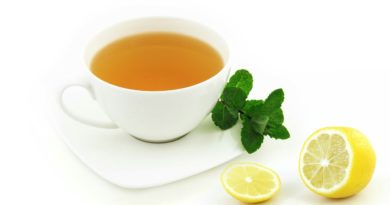Functional Food News
## Functional Food News: The Next Frontier in Health and Wellness
The landscape of the food industry is evolving at a pace that is both exciting and health-conscious. Functional foods, which offer health benefits beyond basic nutrition, are at the heart of this trend. Here’s a deeper look at the latest in functional food trends, consumer preferences, and the industry’s innovative solutions.
## TheGrowing demand for Functional Foods
The global functional food and beverage market is valued at over $281 billion and is forecast to reach over half a trillion by 2028[3).
This growth is driven by a heightened awareness of health and nutrition, especially in the era of the global pandemic. Consumers are increasingly seeking healthier eating options, and the food industry is adapting to meet these needs. According to HealthFocus, 60% of global consumers choose food and beverage products for preventative health benefits, a number that is at an all-time high[1.”
In the U.S. alone, sales of functional foods and beverages reached $92.1 billion in 2023 and are projected to grow to $106.9 billion by 2026[1).
## Top Functional Food Trends in 2024
Functional foods are not just a niche market; they are becoming a staple in many consumers’ diets. Here are the top trends in functional foods for 2024:
## Performance-boosting products
Performance-enhanced foods, beverages, and dietary supplements were among the best-selling categories last year. This includes products designed to hydrate, enhance energy, and improve overall performance. For example, Uncle Matt’s Organic Ultimate Athlete Performance, created by an NFL team chef, includes ingredients like organic beet juice and coconut water to hydrate and reduce oxidative stress[1).
##
Self-esteem support and mental well-being</p
Consumers are increasingly looking for products that support mental health and well-being. According to Hartman Group Research, feeling good about themselves is now the most important factor defining wellness for many American consumers. Sales of functional beverages for brain health reached $1.2 billion in 2023, with elements like stress/anxiety management, mood sustainance, and mental sharpness being key[1).
## Proactive beverages
Proactive beverages, including functional soda, water, and sports/energy drinks, are gaining popularity. These beverages are designed to provide health benefits such as energy, immunity, and hydration. Crystal Light’s low-calorie powdered drink line, which includes Energy, Immunity, and Mixology variants, is a good example of this trend[1).
##
Re-conditioning items</p
Products that help prevent conditions like diabetes and digestive issues are on the rise. One-third of consumers are currently eating or drinking products that claim to lower inflammation, and one in five are looking for foods that improve metabolism. Sales of supplements for blood sugar control grew 7.6% in 2023[1).
## <p allergen-free formulations</p
Allergen-free formulations are increasingly in demand, with more than a quarter of adults trying to manage or treat food allergen or sensitivity. Sales of allergen-friendly foods increased by 25% in 2023, driven by consumer preferences to avoid gluten and dairy products[1).
## Plant-Based Innovations and Alternative Proteins
Plant-based innovations and Alternative proteins are also key trends within the functional food sector.
– **Plant-Based Innovations:** Consumers are seeking sustainable and health-conscious options, leading to the rise of plant-based meats, dairy alternatives, and seafood products. Brands like Beyond Meat and Impossible Foods are expanding their product lines, and companies like Good Catch are introducing fish-free tuna[2).
– **Alternative Proteins:** Insect-based proteins, Lab-grown or cultured meats, and new plant-based protein sources are gaining popularity. Companies like Exo and Chapul are producing insect-based protein bars, while startups like Upside Foods and Mosa Meat are bringing cultured meat closer to market[2).
## Focus on Functional Ingredients
Functional foods often include specific ingredients that provide additional health benefits.
– **Probiotics and Adaptogens:** Probiotic-rich products like kombucha and kefir, and adaptogen-enhanced products like Four Sigmatic’s mushroom coffee, are popular for their gut health and immunity-boosting properties[2).
– **Nutrient-dense superfoods:** Foods with added omega-3 fatty acids, prebiotics, and other nutrient-dense ingredients are in high demand. For instance, Vitaminwater by Coca-Cola launched new variants with added health benefits[3).
– **Fermented and Pickled Foods:** Traditional fermented foods like kimchi, sauerkraut, and kefir are gaining popularity due to their probiotic properties and health benefits. New products like fermented plant-based cheeses and vegetables are also emerging[2).
## Industry Innovations and Consumer Trends
The food industry is innovating to meet the growing demand for functional foods.
– **Tech-Driven Food Innovations:** The use of AI, robotics, and other technologies is transforming food production, preparation, and delivery. Robotic kitchens and AI-powered meal planning apps are examples of this trend[2).
– **Reformulation for Health Benefits:** More than half of U.S. food companies are reformulating their products to provide health benefits, such as reducing added sugars, sodium, and adding beneficial ingredients. This includes launching new products with fewer calories, sugar, or salt, and adding more fibre, fruit, and vegetables[4).
## Consumer preferences and Health Focus
Consumers are driving the demand for functional foods with their health-conscious preferences.
– **Health as a Top Consideration:** Two-thirds of those under 40 years old are extremely concerned about access to healthier products that are affordable. This demographic is driving the demand for multifunctional better-for-you products[4).
– **Functional Benefits in Food:** Consumers are looking for foods and beverages that provide specific health benefits such as immunity, digestion, energy, weight management, and heart health. The importance of functional benefits in choosing snacks and beverages is also on the rise[5).
##
Key Consumer groups</p
– **Younger Consumers:**Interest in functional foods skews younger, with two-thirds of millennials and households with kids, half of Gen Z and Gen X, and one-third of baby boomers currently buy functional food[4).



